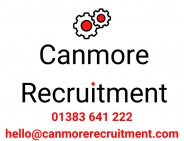Job hunting can be overwhelming. If it’s the first time you have been ‘on the market’ for a while, you might not know where to start. Well, hopefully you read our previous blog post about writing your CV so at least you have that. But where do you send it?
Long gone are the days of the 30-page careers pull out in the Friday broadsheets (are we all showing our age if we remember them? 👴🏼). But that’s no bad thing. With the tools now at your disposal, the job search can be more focused and less stressful.
Know What You’re Looking For
Before diving headfirst into job boards or firing off applications, it’s worth taking a bit of time to get really clear on what you’re actually looking for. Otherwise, it’s easy to fall into the trap of applying for everything and anything — and ending up either overwhelmed or interviewing for roles that don’t actually suit you.
Think of it like house-hunting. You wouldn’t start booking viewings without knowing your budget, ideal location, or whether you need a garden, would you? Job searching is no different.
Here are a few key things to consider before you start:
- What type of role are you looking for?
Job titles vary wildly across companies, so focus on the responsibilities you enjoy and want to build on. Are you looking for a step up? A change in direction? More flexibility? - What industries are you interested in?
Some people are industry-agnostic, while others want to stay firmly within a specific sector. Think about where your skills are most relevant — and where you’d actually enjoy working. - What matters most to you in a workplace?
Is it salary? Location? Hybrid working? Career development? A values-driven culture? Defining your non-negotiables early on helps you filter out what’s not right for you. - What kind of environment brings out your best?
Fast-paced or steady? Big corporate or small business? Knowing where you thrive can stop you making the same mistake twice.
Getting clear on your priorities won’t just save you time — it’ll also help you write a stronger CV, perform better in interviews, and feel more confident throughout the process. Plus, when you’re working with a recruiter, we’ll be able to help far more effectively if we know what ‘great’ looks like to you.
Where to Look: Go Beyond the Job Boards
Yes, use them. Absolutely. You’ve probably heard of the bigger and more popular ones such as:
There are also some more niche sites, and CV Library runs a number of those such as EngineeringJobs, ITJobs.
Don’t rely on Job Boards exclusively, though.
We’ll cover Recruitment Agencies below, but many businesses will only use Recruiters once they have exhausted all of their own, direct sources anyway. One of those sources is their own company website’s Careers Page. When you were having a good think about what you really wanted in your next job, you may have come up with a list of some desirable companies that you would like to work for. Check out their website and see if it has a Careers Page. If it does but your ideal role isn’t on there, there are some suggestions below as to what you can do to keep on top of any changes to that page, rather than logging on every day.
LinkedIn is great for spotting opportunities, networking and being found. Make sure your profile is up to date with as much information as possible. You can also pin your CV as a document to your profile page. There have been many debates about whether you should use the green ‘Open To Work’ banner on your profile picture. We believe that if you are open to work, why wouldn’t you? It’s a topic deserving of it’s own blog post but instead of that, Forbes covered it in detail as did CNBC.
If you are actively looking for work, don’t be passive on LinkedIn. Connect with people in the industry that you are interested in. Commenting on and sharing other peoples’ posts can also help get you noticed. You can also really put yourself out there and create your own content. There have been some great examples of LinkedIn users really taking themselves out of their comfort zone to do things like videos about themselves and what they are looking for. It doesn’t need to be a jazzy, hi-tech production. Just you, talking clearly into your phone and then uploading it will do.
Never underestimate the power of your own network. Most people love to help out and whether you call, text, email or send a LinkedIn message to an ex-colleague, do get in touch with them. The more people that know you are job hunting, the more eyes and ears that are looking and listening for opportunities that might suit you.
Tools to Stay Ahead
Here is a list of tools that can help job opportunities jump into your Inbox, leaving you more time to network.
- Follow That Page: Get notified when a company updates its careers page — no more constant checking.
- Google Alerts: Set up alerts for job titles, industries, or companies you’re interested in.
- LinkedIn Job Alerts: Tailor alerts for specific roles and locations.
How to Work with Recruiters (and Get the Best from Them)
Recruiters can be a brilliant support during your job search (we would say that though, right?) — but like any relationship, the more you put in, the more you get out. It’s not just about firing off your CV and hoping for the best. A good recruiter will act as your advocate, but they can only do that properly if you’re clear, honest, and responsive.
Start by being upfront about what you’re looking for — not just the job title, but the kind of work you enjoy, the company culture you’d thrive in, your salary expectations, and what you don’t want. The more we know, the better we can match you to opportunities that genuinely suit you.
Make it easy to work together: answer calls or messages promptly, give feedback after interviews, and keep us in the loop with where else you’re interviewing. That kind of communication helps us support you more effectively, especially when it comes to negotiating offers or managing timelines. However, you are entitled to expect the same from your Recruiters. If you don’t feel that you are getting a response quickly enough, pick up the phone and chase the information you are looking for.
And remember, it’s totally okay to work with more than one recruiter, but be transparent about who you’re speaking to and where your CV has gone. Duplicate submissions can be awkward for everyone and could harm your chances. On that note, it should only be an absolute rare occasion when a Recruiter can’t tell you who their client is. Your job of keeping track of your applications is made impossible if you don’t know where your CV is being sent. Insist that you are told the employer’s name before agreeing to your CV being submitted.
Above all, see recruiters as part of your team. We want to help you succeed — not just land any job, but the right one. When you treat it like a two-way relationship, that’s when it really works.
Staying Organised and Motivated
As mentioned above, keeping track of your applications is essential. For example, if a recruiter contacts you about a role with one of their clients, you need to know whether that company already has your CV. Unlike the Euromillions, where more entries increase your chances of winning, multiple applications to the same employer can make you look disorganised. Whether you use an Excel spreadsheet or a good old-fashioned notepad and pen, make a note of each role you apply for — and when.
Celebrate the small wins — even reaching the interview stage is a step forward. There’s value in every process, even if it doesn’t result in an offer. Ideally, you’ll receive some constructive feedback that can help improve your chances next time.
Don’t take silence or rejection personally. The market is busy, unpredictable, and, to be blunt, some employers still haven’t grasped the impact their lack of feedback has on applicants. Focus on what you can control and keep going.
You’ve Got This
Job searching is a journey. Yes, you might get lucky and land your ideal job in the first week — but more often than not, it takes longer than you’d like.
There will be things outside your control that frustrate you. But by making a plan and sticking to a structure, you’ll retain a sense of control — and that’s key to staying positive and focused.
If you’d like more support or just a bit of friendly advice, get in touch with us at Canmore Recruitment on 01383 641 222. We’re here to help.

